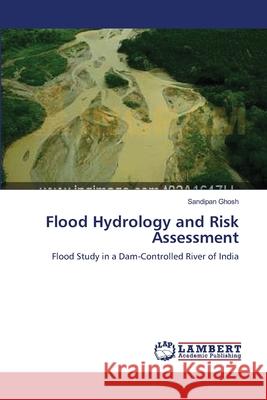Flood Hydrology and Risk Assessment » książka
Flood Hydrology and Risk Assessment
ISBN-13: 9783659500985 / Angielski / Miękka / 2013 / 136 str.
Damodar River of India is popularized as 'Sorrow of Bengal' due to massive unpredictable destruction in the monsoonal floods, recorded since 1665.Taking three prime objectives of development: (1) flood control, (2) extensive irrigation and (3) power generation, Damodar Valley Corporation (DVC) was established in 1948 as India's first multipurpose river valley project on the Damodar River Basin. Four large dams, Durgapur barrage and Tenughat reservoir are built to tamp the flood prone Damodar River using the water resource in an integrated method. Carrying sixty years of legacy, the existing drainage and flood control system of DVC has aggravated a number of hydrogeomorphic problems especially in the lower segment of Damodar, viz., siltation of river bed and reservoirs, uncontrolled monsoonal stream flow, declining carrying capacity of lower course, drainage congestion, low-high magnitude annual floods, decay of palaeochannels etc. Highlighting the existing problems, this research work mainly tries to analyze the pre-dam and post-dam flood hydrology and risk assessment of Damodar River Basin which can be applied in the flood management strategies of West Bengal.
Damodar River of India is popularized as Sorrow of Bengal due to massive unpredictable destruction in the monsoonal floods, recorded since 1665.Taking three prime objectives of development: (1) flood control, (2) extensive irrigation and (3) power generation, Damodar Valley Corporation (DVC) was established in 1948 as Indias first multipurpose river valley project on the Damodar River Basin. Four large dams, Durgapur barrage and Tenughat reservoir are built to tamp the flood prone Damodar River using the water resource in an integrated method. Carrying sixty years of legacy, the existing drainage and flood control system of DVC has aggravated a number of hydrogeomorphic problems especially in the lower segment of Damodar, viz., siltation of river bed and reservoirs, uncontrolled monsoonal stream flow, declining carrying capacity of lower course, drainage congestion, low-high magnitude annual floods, decay of palaeochannels etc. Highlighting the existing problems, this research work mainly tries to analyze the pre-dam and post-dam flood hydrology and risk assessment of Damodar River Basin which can be applied in the flood management strategies of West Bengal.











